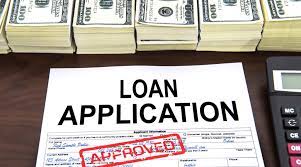Is it All There is to Know to Become a Private Money Lender?
a Private Money Lender
The actions of a private money lender are subject to regulation by both the federal and your local government when it comes to accepting loans from clients. Not only doing business within the standards of a real estate broker license, but operating as a partnership or corporation under the laws of your state of domicile. It is important to make sure you are operating in accordance with rules and regulations as well as regulations specific to your state of domicile and to your experience.
Most of the states of the U.S. allow the practice of private money lending to increase in popularity, particularly in states that have the most favorable economies. Of the fifty states, only about two only require the private lenders to be licensed. In spite of the high demand, there are some states that don’t provide licenses to the private money lenders. In the states that do require licenses, applicants are subjected to a background check, and applicants may be asked to provide documents such as bank statements, tax returns, statements from their employers, including their financial advisor, and references.
anime thinIs it all there is to know?
After you have been licensed as a private money lender, all of your services can be performed by yourself without the client having to come to you. You get paid as soon as the private capital is sold. The difference among investments is that you only get paid interest on the amount of capital, and when the capital is purchased you do not get paid for any initial work. Your clients end up paying you for work done, but in this case it is the initial work.
As they say, there is much to know, but little time.
When should you buy your clients’ investment capital?When pairing up with a broker (48 in most states) you can do deals where you will earn up to 34% on the deal, depending on the state and the type of private money loan available. When you are investing through your own company or through a collection of clients, you can earn up to 60-70%, depending on your profile and the type of deal you are working on. Your own investment can be either commercial or residential, depending on your profile. The best part is, there is no brokering fee, again, unlike being a real estate broker.
Let’s say you retired one day, and hadn’t bothered to save or invest for ten years. Over the ten years, defaulted on loans and short sales (subject to your state laws) will have reduced your portfolio by 60% and you will have laid down annually $ Angeles est. minus any real estate windfall that may come your way. You would have become a subprime lender. But you can hop on the private money boom. Buying in bulk will yield you savings along with fee savings depending on the spectrum of deals that are available, typically in the 20-40% range. Your collection can bring in an additional $100,000 or so per annum.
The majority of competition is in the short property space. Private money is a very valuable commodity, but in this case gets expensive in spite of the fact that there is little competition for transactions under $1,000,000. If you decided to comprise with very large commercial or residential properties you may wish to deal within the space of 10-15% of properties gotten.
That’s private money for you!
